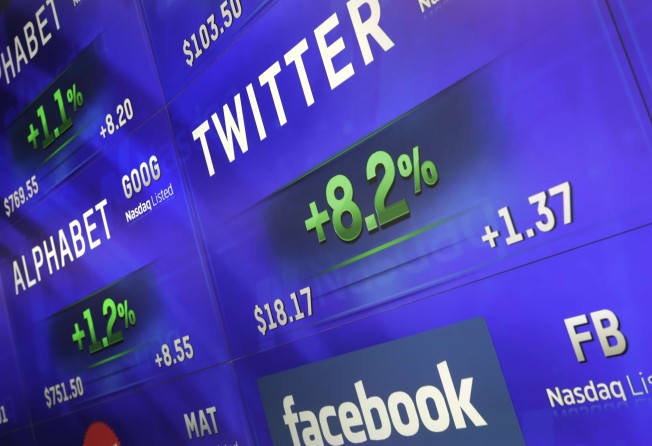Google, Facebook and Twitter must boost their efforts to block fake news
The firms need to consider themselves as media companies and take responsibility that goes with the news business

News can shape perceptions and change opinions. Given that power, care should be taken to get it only from trusted media sources. But in a world where for many people speed and convenience are important, it is easiest to get it from the most widely used and reliable internet resources, Google, Facebook and Twitter. All reject suggestions that they are publishers, so it is unsurprising they were caught up in accusations of influencing the recent US election.
If the three had acknowledged their role in news dissemination, they would have been prepared for the barrage of fake information that flooded the internet during election campaigning. One item claimed Pope Francis had endorsed the Republican Party’s Donald Trump and another erroneously reported that an FBI agent investigating emails sent by challenger Hillary Clinton had been found dead. In the wake of Trump’s victory, with the companies rejecting suggestions that they had helped sway the result, another false story claimed that he had won the popular vote. The following day, Alphabet’s Google and Facebook decided to cut off the advertising revenue streams of websites producing false information. Twitter made moves against hate speech and harassment by announcing a way for users to block notifications of tweets using certain words.
Google and Facebook control almost 50 per cent of online advertising. Websites that generate popular content get paid by the firms for hosting ads, creating a highly competitive environment. It is also fertile ground for those who are imaginative, innovative or, unfortunately for people seeking news, fraudulent. Trying to determine what is genuine or fake is difficult when there are millions of websites and the original source is uncertain. Mixed in with sites that present satirical news, circumstances are ripe for opportunism and confusion. It has not helped that Google, Facebook and Twitter consider themselves neutral platforms for the sharing of information and ideas rather than providers of news.
A firm that publishes news and profits from it cannot be anything but a media company. Google and Facebook have been especially sensitive to content involving sex and violence and have complex software in place to prevent such content. That is not as effective an approach when it comes to fake news, though, which requires human editorial judgment. Misinformation can be damaging and even dangerous. Google and social media platforms have responded to the criticism. But the changes are small and better policing is needed.